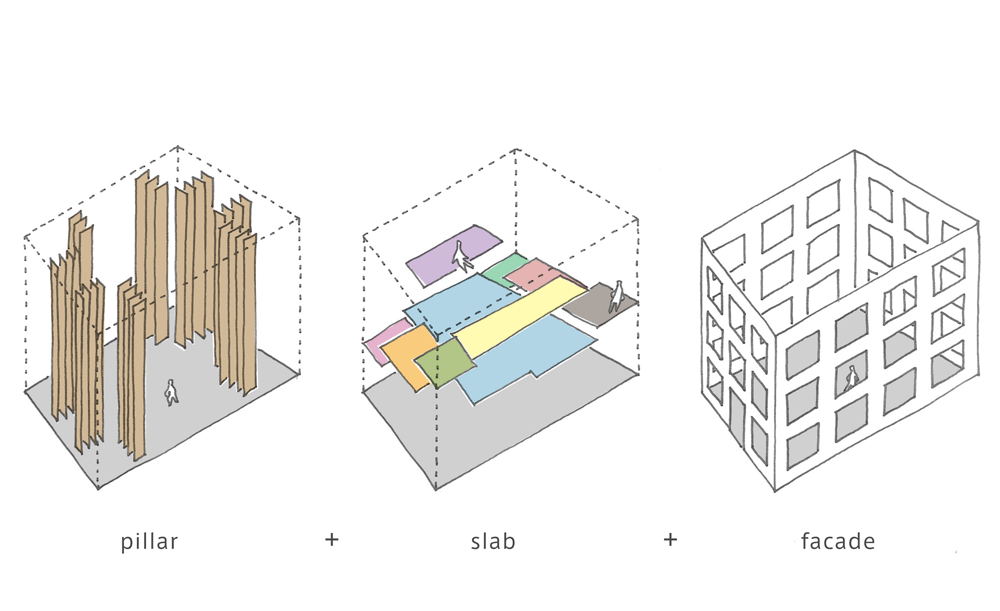Mamiya Shinichi Design Studio recreates "feeling of being in a grove" inside its own office
Rows of wooden pillars support various split-level floors to create a forest-like feel inside the Nagoya office of Japanese architecture firm Mamiya Shinichi Design Studio (+ slideshow).
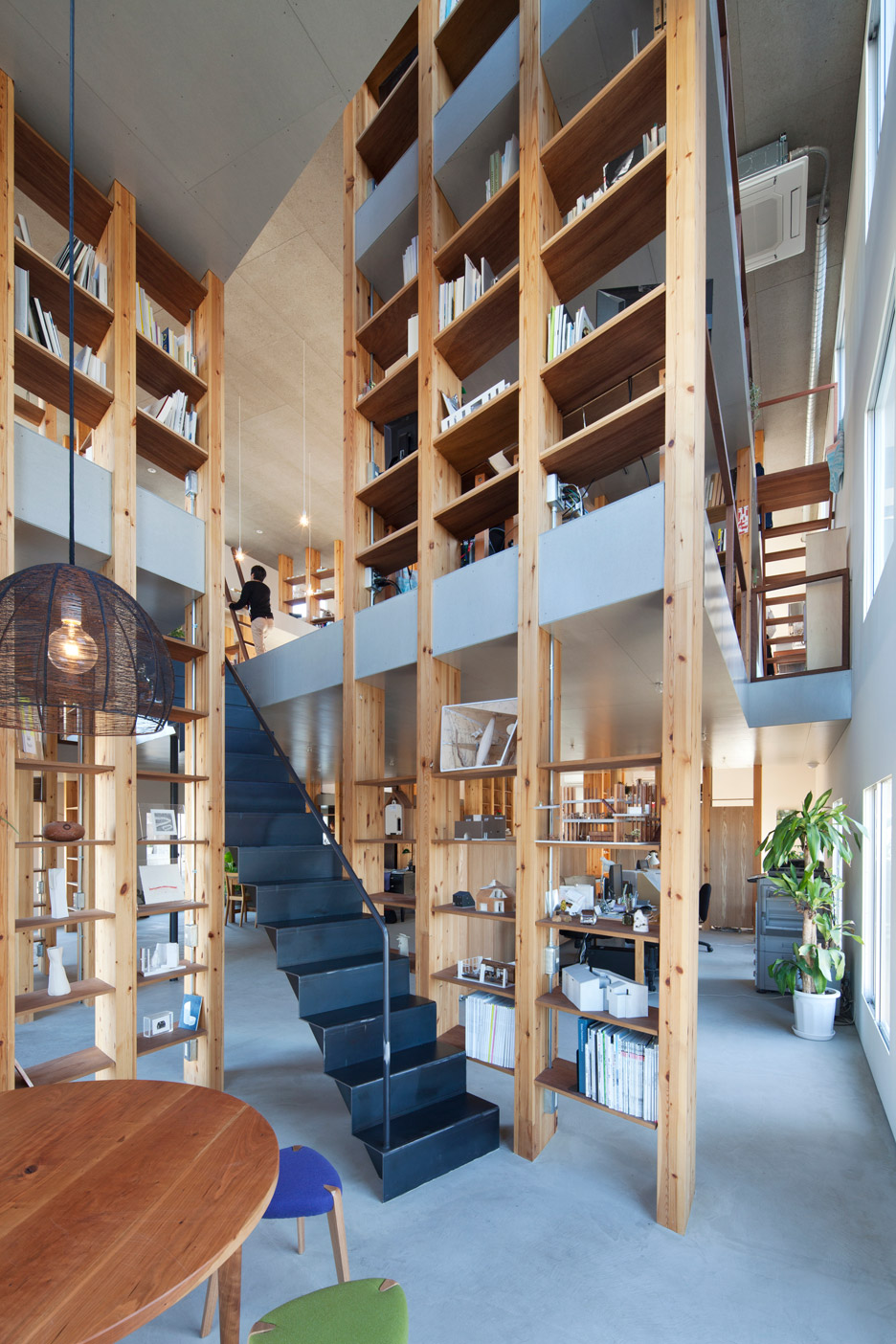
Mamiya Shinichi Design Studio's new offices are located in a suburb to the east of central Nagoya on a plot close to a busy arterial road.
Externally the building has a simple rectilinear form, but inside it contains a series of platforms arranged at different heights. These are all supported by wooden columns reminiscent of trees, hence the name Pillar Grove.
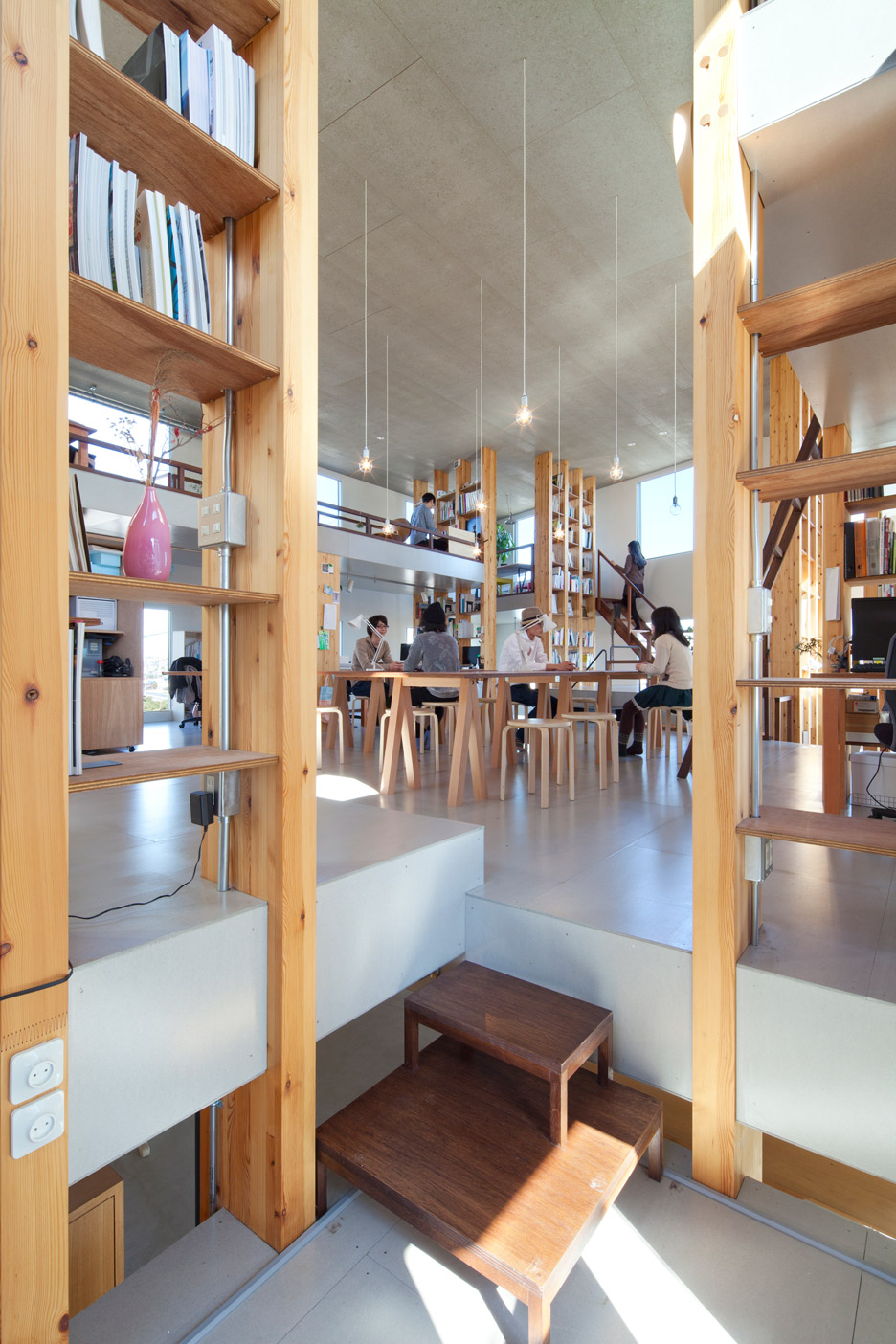
According to the architects, the aim was to "create the image of a fresh space that will play a key role in our company's future development, encouraging rich communication between the staff and exploring the possibilities of a wooden structure".
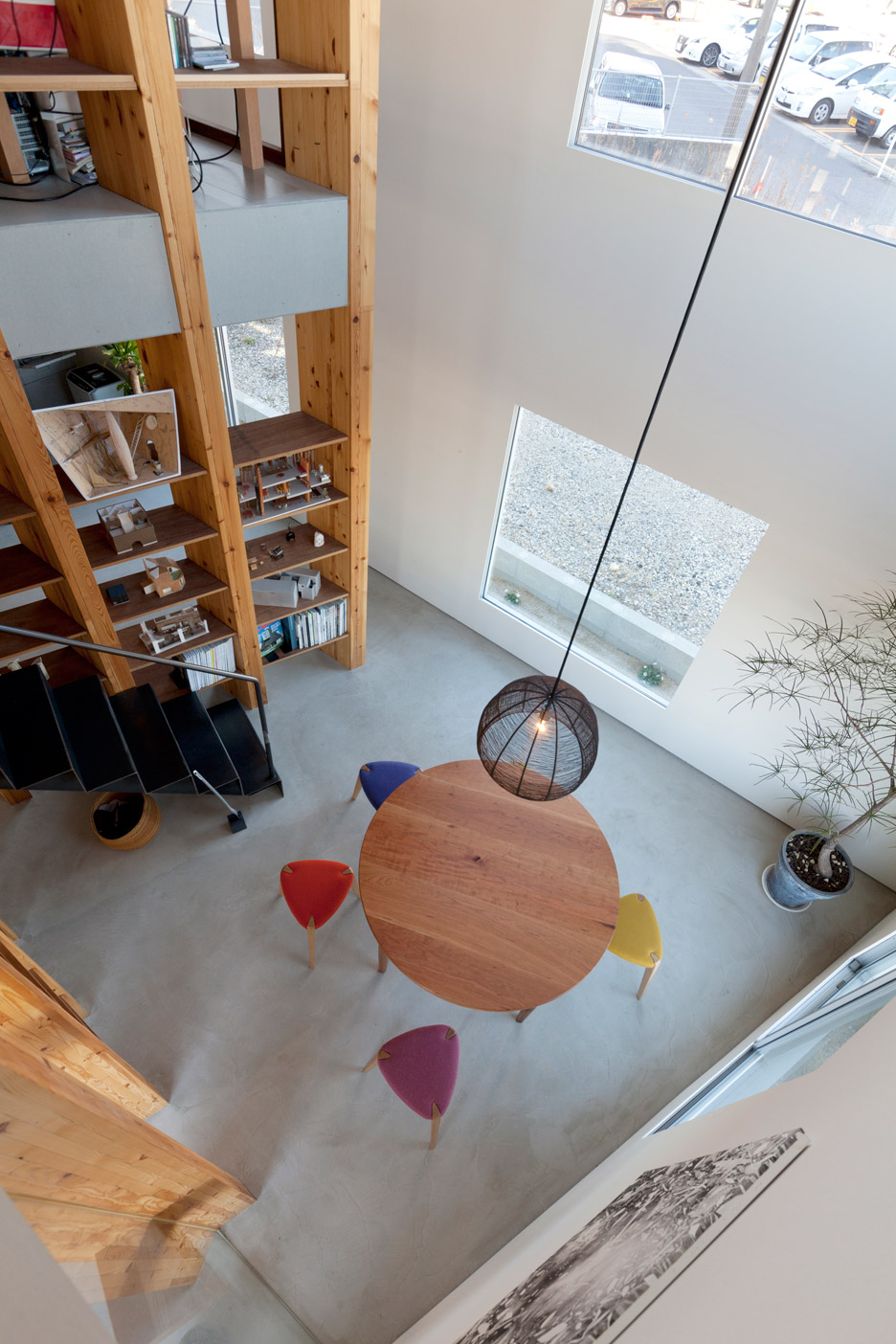
The entirely open ground floor is interrupted only by the 30 timber columns – no load-bearing walls were required.
The pillars are arranged in rows that extend from the external walls towards the centre of the space. They support a variety of irregularly shaped slabs that form a multilayered sequence of potential workspaces.
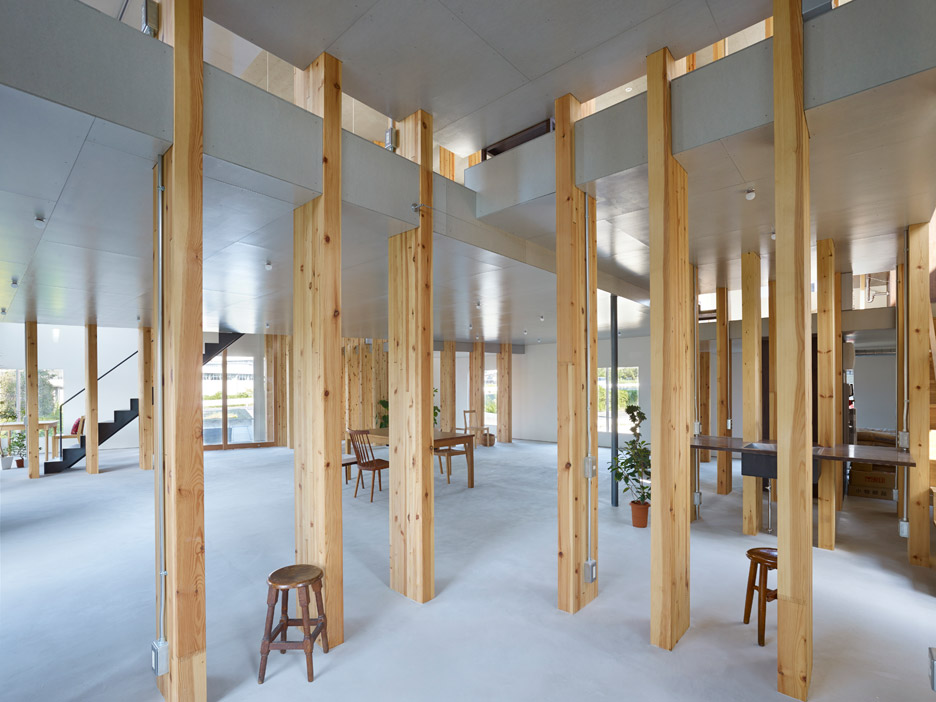
Positioning the wooden supports around the edges of the interior enables partial views across the space that alter depending on the viewing angle.
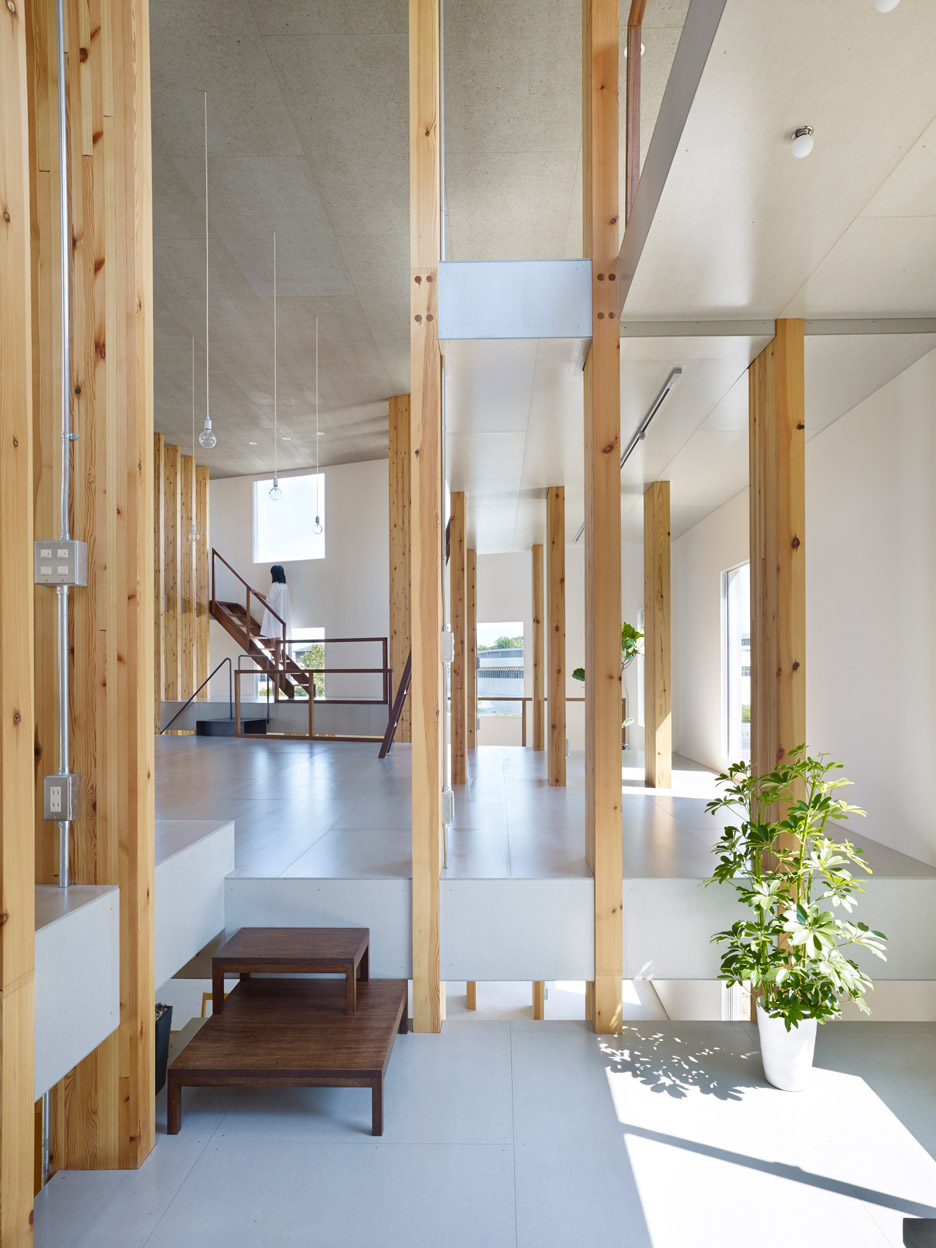
"[It is] a rich, unusual space that provides the feeling of being in a grove, accomplished through the sunlight shining down via windows on the walls surrounding the inside," said the team.
Other interior architecture projects that evoke a walk in the woods include a canteen in Spain with tree-like sculptures extending above its tables and a Japanese chapel with branching metal columns lining its aisle.
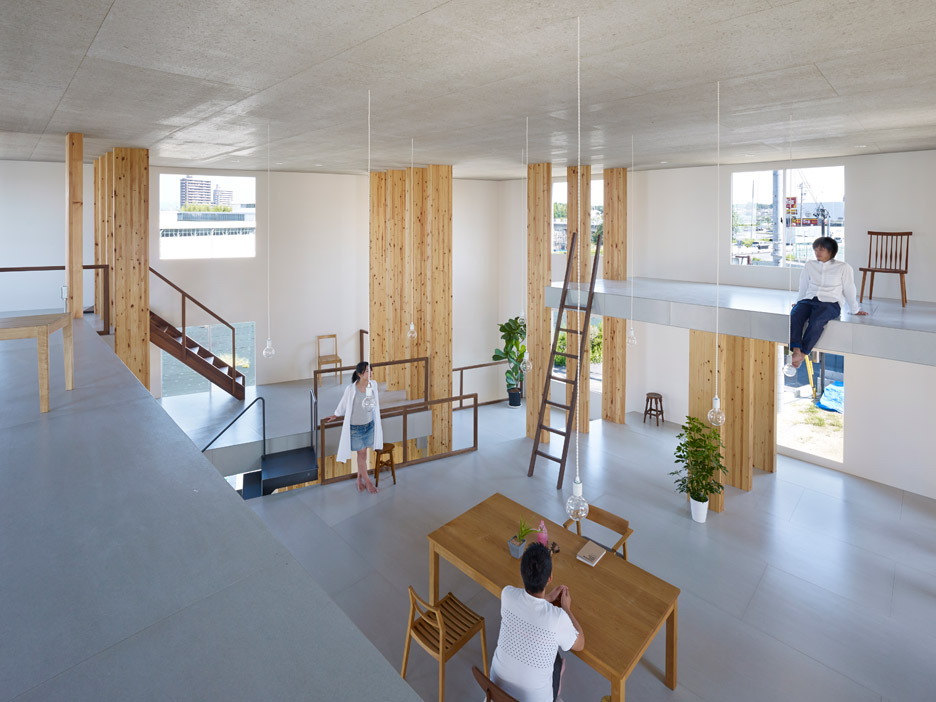
A simple folded metal staircase ascends from the ground floor to the largest platform at the centre of the building.
Some of the surrounding levels can be reached by stepping up or down from the central space, while wooden stairs and ladders provide access to the others.
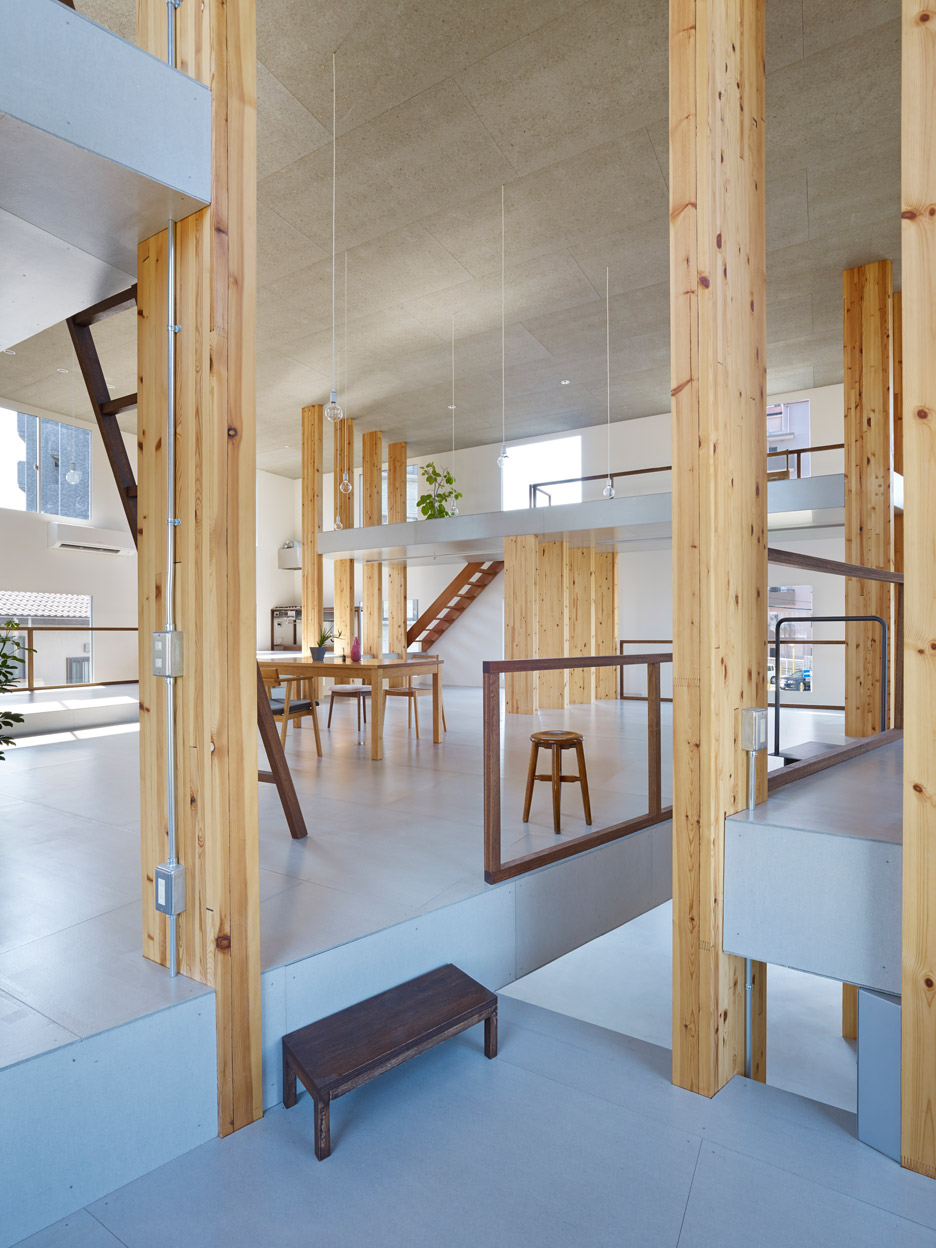
Features added during the furnishing process include wooden railings along the edges of some of the higher levels and large communal tables in the middle of the largest platform.
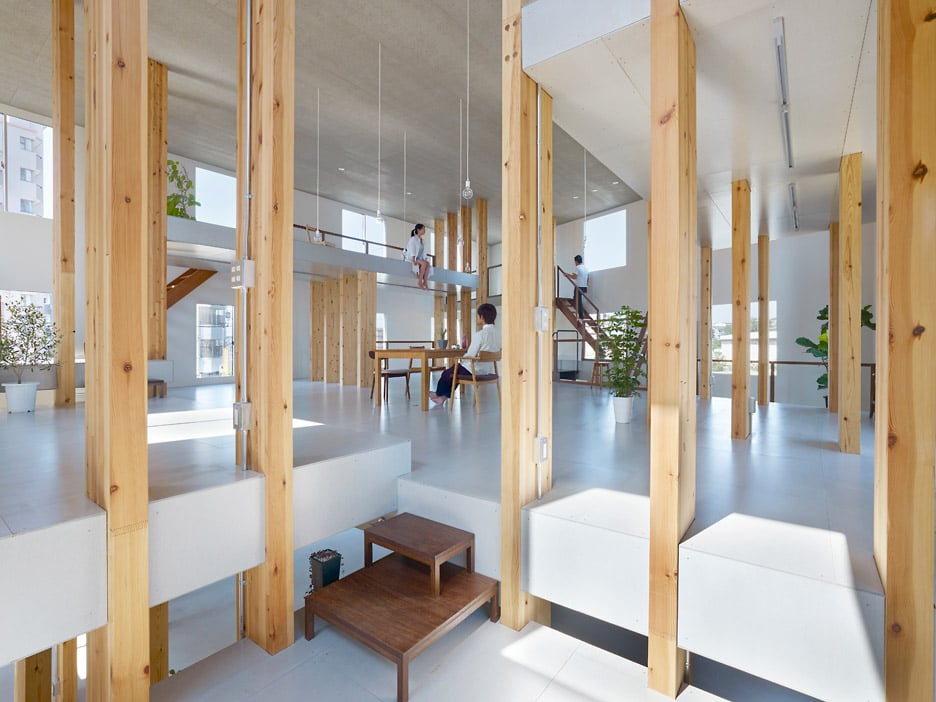
Gaps between the pillars have been filled with shelves that, when stacked with books and magazines, help to create more intimate spaces at all levels.
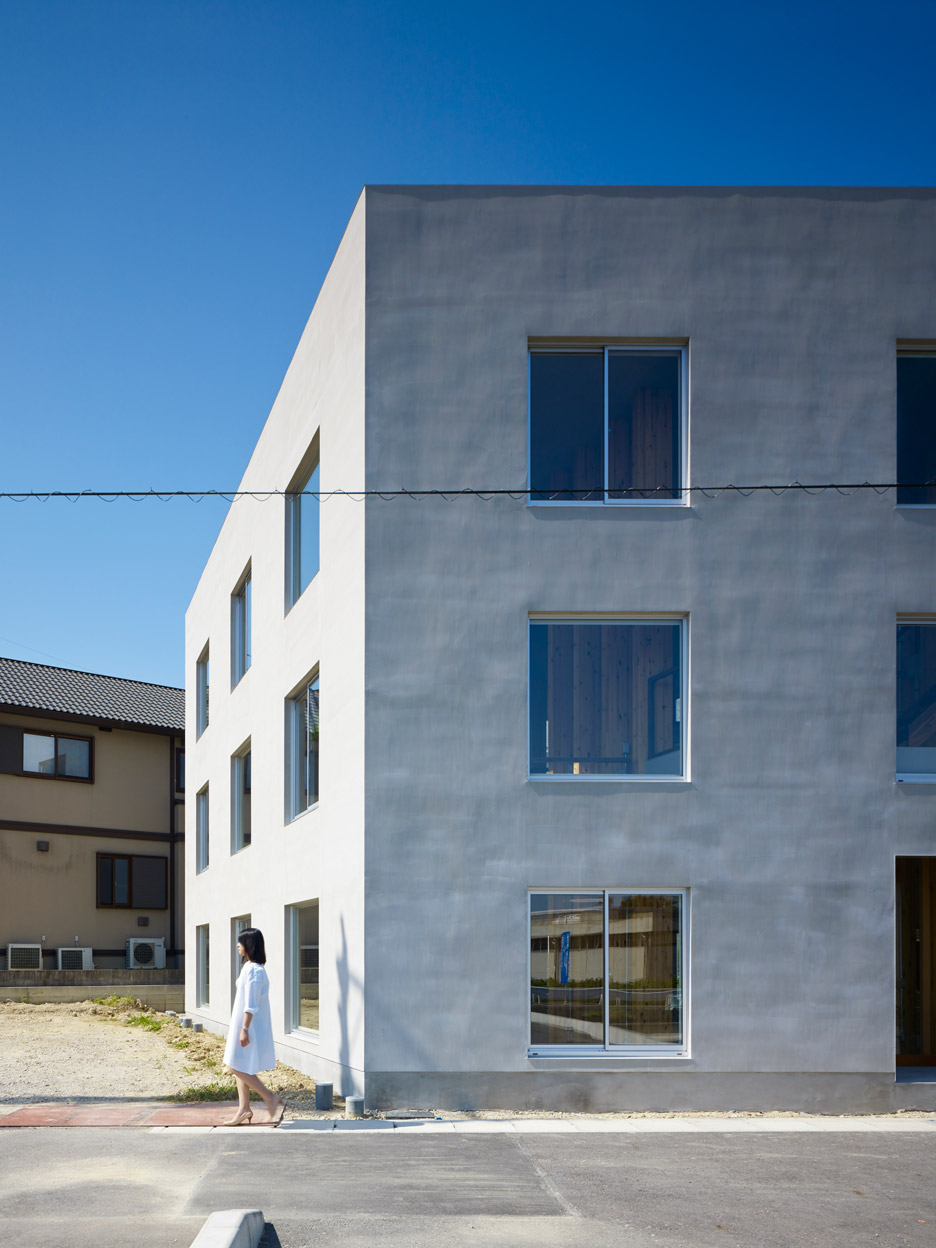
There are also several quirky details, including windows that are intersected by the platforms, and staircases that slot neatly in the gaps between the slabs.
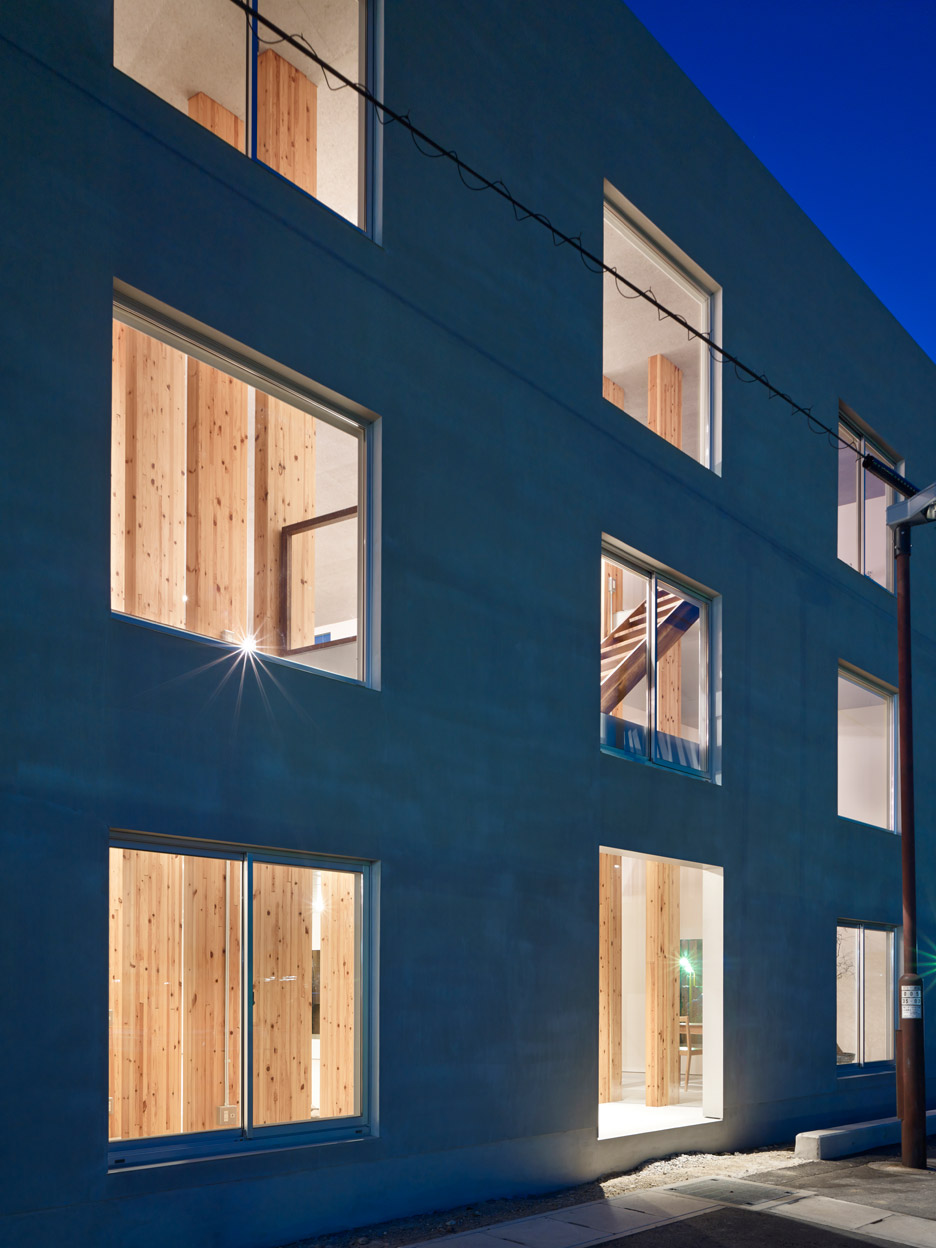
The building's exterior is defined as a simple geometric volume punctuated by regularly spaced square windows on each facade that lend it a classical aesthetic.
Photography is by Toshiyuki Yano.
Project credits:
Designer: Mamiya Shinichi Design Studio – Shinichi Mamiya
Design Team: Shinichi Mamiya, Rintaro Kakeno
Structural Engineer: Tatsumi Terado Structural Studio – Tatsumi Terado
